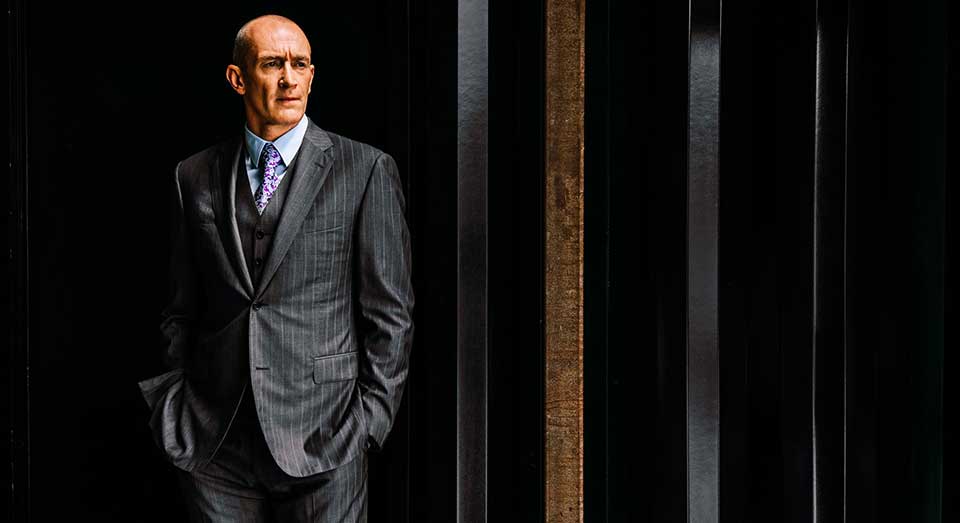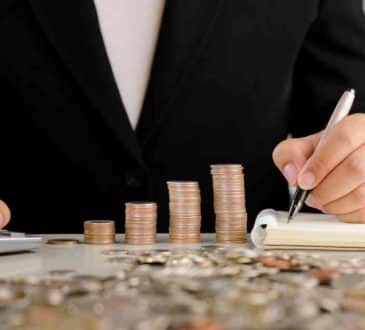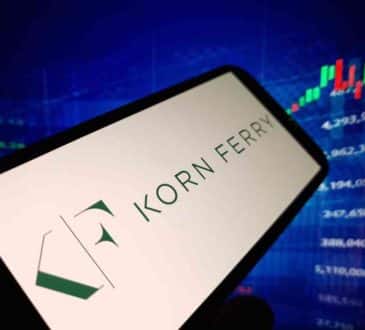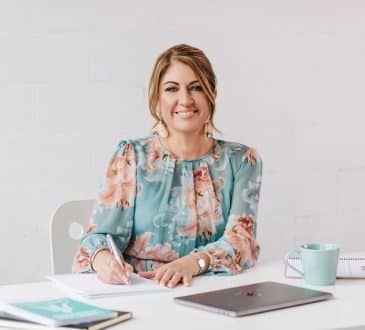What I learnt about optimal performance by making myself a human Guinea Pig

One lesson I’ve learned in two decades as a performance coach is that you don’t become your best without learning and growing from setbacks. It is because of these setbacks, not in spite of them, that we discover the courage, the commitment and the perspective required to perform at our peak, in our personal and our professional lives. Many of strategies that I now employ while working with CEOs and executives around Australia were formed in the fire of adversity. My new business is called StriveStronger as I love the origins of the word ‘strive’ which means to push through hardship and come out the other side, and I think is vital we build strength in all areas of our lives. Let me explain.
The first thirty-nine years of my life were great. I had a successful career working in elite sport for 15 years including the Australian Cricket team, various Olympic athletes and I also built and sold three businesses, including selling Performance Clinic to KPMG.
My wife had a high-profile job in the media, and we had two beautiful, healthy kids. We lived ‘the life’ in a massive house on Sydney’s lower north shore. We employed a full-time nanny and drove fancy European cars – you get the picture.
But just before I turned forty, things took a turn for the worse. I had been so caught up in the quest to be successful that I had let everything else fade into the background. What was driving me was ego – I wanted to impress everyone with what I could do. In the process, I failed to recognise or acknowledge the storm that had been building in my personal life for a couple of years. My head was buried in the sand.
My marriage broke down and suddenly I found myself alone and struggling to make things work. Each night after work I’d come home to an empty apartment and burst into tears. No wife. No kids. No dog. No connection. I was ashamed, felt like a failure and, in hindsight, I was what is referred to as ‘functioning depressed’.
I self-medicated with alcohol, fast food and a series of short-term relationships. A temporary salve, it ultimately led my mental and physical health to deteriorate further. I was barely functioning, let alone flourishing or striving. Ultimately vanity intervened when my sister posted a topless photo of me on Facebook with a distinct ‘dad gut’ and I immediately decided something had to change.
I realised that I had to transform my approach to my physical and mental health, my fitness, and my personal and social wellbeing. It had all gone wrong, and it was interlinked. I needed to learn some new habits and unlearn some old ones. I turned myself into a human guinea pig, putting into the practice the theories I had learned about performance and living optimally.
First, I swallowed my pride and sought help. Jill, the talented psychologist and executive coach I worked with helped me to be accountable for the role I played in my circumstances and to understand how my own limiting beliefs about failure were now holding me back. She helped me to reframe ‘failure’ as an opportunity for growth and learning and helped redefine my sense of purpose in life, focusing on prioritising relationships with my children and family, all of which led to big changes in my wellbeing and sense of belonging.
In my darkest days I lost the ability to have fun, so I started to lock in different types of play every week. These could include being present and engaged with my kids, participating in different fitness activities like dragon boat racing or snow skiing, and booking fun getaways with friends or family. Most importantly, I tried not to take myself too seriously and began laughing and smiling again.
As well as my brain, I needed to address my body, which was a mess from the flogging I had given it. I was treating my body like an amusement park, some days open 24 hours. I started to prioritise seven hours sleep a night, began to see a physiotherapist each week to get to the bottom of my injuries and I swapped my cardio-heavy approach to exercise for more strength training to reinvigorate my flagging testosterone and human growth hormone levels. I rediscovered the benefits of physical and psychological recuperation, incorporating yoga, visualisation and massage into my week and ensured I took regular breaks from work, including holidays.
I saw a nutritionist, Teresa, who helped me put together a ‘renovation plan’ for my body. That meant cutting back on the booze, the chips and the sugar and replacing them with quality protein, fresh vegetables, performance carbs and good fats.
I also started learning again. When I was weathering my perfect storm, the last thing I felt like doing was learning or trying new activities. My brain had become stale. I was in a rut and had been playing the ‘Same Game’ for a number of years. I set myself new goals including learning to play the guitar (still a work in progress), challenging myself to swim the English Channel and learning about technology and digital business models.
I’d fallen into bad habits at work too. My diary was full of non-productive meetings, I sent and received countless emails, I was addicted to the social media dopamine hit and there were constant distractions as we shifted to an ‘agile’ working environment. I wrote down what my ‘ideal day’ and ‘better week’ looked like. While I wasn’t always going to achieve them, they provided a framework and vision as well as helping me reclaim my time, energy and attention.
With my plan in place, I developed strategies to stick with it. I now have a DEXA body composition scan and blood pathology test to measure cortisol and my hormone levels every six months; I use a Garmin watch to track my daily steps, sleep, resting heart rate, exercise intensity and active minutes each week; I schedule time to rest and to connect with those I love; I visualise my ‘ideal day’; track my ‘better week’ and lock in an annual recovery plan (holidays and regular breaks).
The program worked – and much better and more quickly than I initially expected. I adjusted and refined it over time, but it gave me a structure and a method for rebuilding my wellbeing and pushed me to improve in all areas. Later, I came to see that the knowledge I’d gained and the strategies I’d devised could help others, just as they had helped me, this lead to writing MatchFit and designing a philosophy to help other people get back into peak physical and psychological shape. .
We all go through periods in life where we are struggling or grieving or feel so stressed that our physical and psychological health deteriorates.
If you do nothing, your body and brain will decline over time, just like a piece of farm machinery that is never oiled. Regular physical activity and daily movement, healthy nutrition, stimulating and exercising the brain, playing and adopting a youthful disposition all counteract this process. Fit and healthy people have lower levels of stress, anxiety and depression, and a competitive advantage in the workplace. Stretching the brain and adopting a process of constant learning does wonders for your grey matter too. I have learned this – plus a side of humility along the way – through experience and the results speak for themselves. My bioage dropped seven years, I dropped 11 per cent of my body fat and 10 centimetres from around my waist but more importantly, I felt more engaged, more creative and productive at work, my relationships improved, I was fitter and stronger than I’d been 15 years earlier and for the first time in a long time, I felt happy and connected in all parts of my life.
When I look back now, I see it was a life-changing experience. Until that time, my career and my studies had equipped me with ‘textbook responses’ to dealing with trauma. If someone told me they were feeling upset or depressed, I’d immediately think about models and scales, rather than leaning forward and truly understanding and listening. These days, when someone sits down with me and says they’re struggling, I can look them in the eye and say, with genuine empathy, ‘I understand – I know exactly how you feel.’ But I also know they can not only get better, they can feel better and perform better than they ever thought possible.
Have you read?
The 20 best (and the worst) cities for retirees in the United States, 2019.
Cities With The Most (And Least) Expensive Apartments In The United States, 2019.
Revealed: Most Forested Countries In The World.
Ranked: The World’s Most Fashionable Countries For 2019.
Most Prosperous Cities In The World For 2019.
Add CEOWORLD magazine to your Google News feed.
Follow CEOWORLD magazine headlines on: Google News, LinkedIn, Twitter, and Facebook.
Copyright 2024 The CEOWORLD magazine. All rights reserved. This material (and any extract from it) must not be copied, redistributed or placed on any website, without CEOWORLD magazine' prior written consent. For media queries, please contact: info@ceoworld.biz








